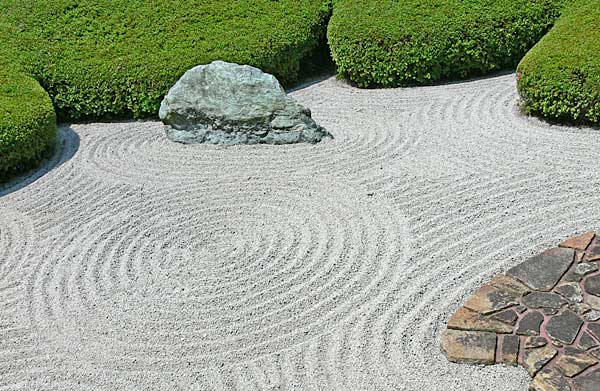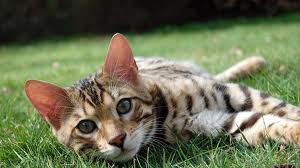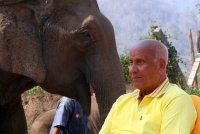Anxiety disorders
We can all, without exception, only hear according to our capacity to understand.
Anxiety occurs when we do not know what we are supposed to do or if we feel unsafe. It is a condition of the nervous system affecting the brain, the mind and subsequently permeating throughout the body in a range of behavioural and physical abnormalities.
It prevents learning and incapacitates in extreme circumstances. And…. it also affects animals.
For this reason, any important messages have to be very simple and repeated to create an opportunity to understand them without triggering anxiety.
Taking this a step further, information requiring processing in our minds or heads will take longer to be assimilated than those messages that are simple enough and universal enough to be absorbed directly into our consciousness or through our hearts. This requires no thinking, just knowing and practising. 
Reducing mental strain and information overload is a basis for conscious control of anxiety. Homeopathy can provide support at an unconscious level and can form a strong foundation of therapy.
Animals also instinctively, to a large extent, know what they need in relation to foods and interventions. Whilst they will accept ‘junk food’ containing salts and fats they will, if given the opportunity, seek better nutrition or give us an indication that this is necessary. If they are suffering anxiety it is because their instincts have been hampered.
Anxiety in domestic animals can be caused by such things as environment, inappropriate diets and interventions, such as early weaning and vaccinating.
Displacement activity like pacing and circling and compulsive disorders in captive wildlife are also forms of environmentally induced anxiety. These can also be seen in domestic animals in certain situations.

I encounter some communication challenges every day in my practice with animals and their owners and even though we are usually on the same wavelength we still need to practise listening with our hearts and eyes. Our minds can create division, anxiety and confusion at a time when we are under enough stress already and it takes practice to listen at a deeper level.
We all have this capacity to calm ourselves but our confidence varies. It comes down to a simple matter of trust and practice. Many animals presenting with anxiety also have anxious owners.
Animals almost never use their minds to communicate to us. Notably, the most effective and meaningful human communications also do not involve the mind.
As animal owners with sick pets we often try to understand information that is complicated. The most important information is often simple and usually comes directly from the animal and not from a laboratory or a textbook. We all get a little overwhelmed with jargon and disease descriptions when often we just need to listen to what the animal itself is telling us. Our minds will not serve us as well as our hearts in these situations. Whilst it is immensely comforting to place our trust in those who understand many things it is equally important to learn to trust our own self and to listen with our hearts.
It can feel quite disconcerting at times to be aware of energy fluctuations in situations so without a sense of self and trust in self we can become anxious. Animals feel this more acutely than humans so it is not surprising that many of them are developing more anxiety related conditions. Even with the most confident and capable owners, certain animals can be overwhelmed with anxiety in situations they do not understand. Some of them have a breed or genetic predisposition to sensitivity, others are damaged by interventions and others simply develop more awareness with time. If we are stressed we can assume they are as well.
In my travels I meet many wonderful people and animals who teach me more about myself and life. As we develop both as human individuals and inside the collective consciousness, we hopefully feel less isolated or vulnerable and we learn to place more trust in ourselves and feel more protected by the Universe. We learn to calm ourselves and avoid stress.
This, like all things, takes time. Animals do this instinctively unless we intervene and confuse them.
I recently stumbled across an essay that brought this home to me and also filled a gap in understanding of my own practice.
Here is an excerpt from Nancie LaPiers essay
“The shamanic perspective is that everything on earth – from the trees, grasses & waters, to her creatures and human beings – is alive and has a spirit. No human being is viewed as loftier on any hierarchical scale; rather every spirit manifesting in physical form is viewed as being an aspect of God, or the one Great Spirit. All beings are seen as relatives and each spirit is accorded honor and respect for it’s special gifts, or “medicine.” It is this humble, devotional perspective which sets up harmonious relationships and reciprocity between the species, and develops a compassionate heart for the “people.” And it is the compassionate heart that compels a shaman to explore the spiritual realms in order to bring help to their brothers and sisters, whether human, animal or elemental, and provides the shaman with their access to power. All powers of the shaman belong to the Creator alone and are drawn through the compassionate heart by the beings(s) in need, for whom that grace is intended.
A shaman understands that the heart is the gateway to the spiritual realms and the purpose and function of their spiritual disciplines is to develop an open heart. True shamans can be recognized by their refusal to lay claim to any personal power to heal, and will dedicate their lives to doing whatever is necessary to become a clear vehicle through which miracles can be made manifest. They have been referred to as “the tender-hearted ones,” “those who walk between the worlds,” bodhisattvas, yogis and saints and can be recognized within virtually every organized religion of the world.”
I had intended to relate some incidents that highlight the need to practice listening instead of thinking and how this serves me well in my practice but the real importance of these postings is to inspire others to develop their own capacities and to see their animals in a new light. To see past the dis-ease and look at what may have triggered it or be exacerbating it.
Animals are a gift to humankind. They remind us of the simple and most important things and we only need to accept that life need not be that complicated after all. That doesn’t mean it is easy, as Sri Chinmoy so eloquently reminds us…
“Simplicity is an Advanced course”

